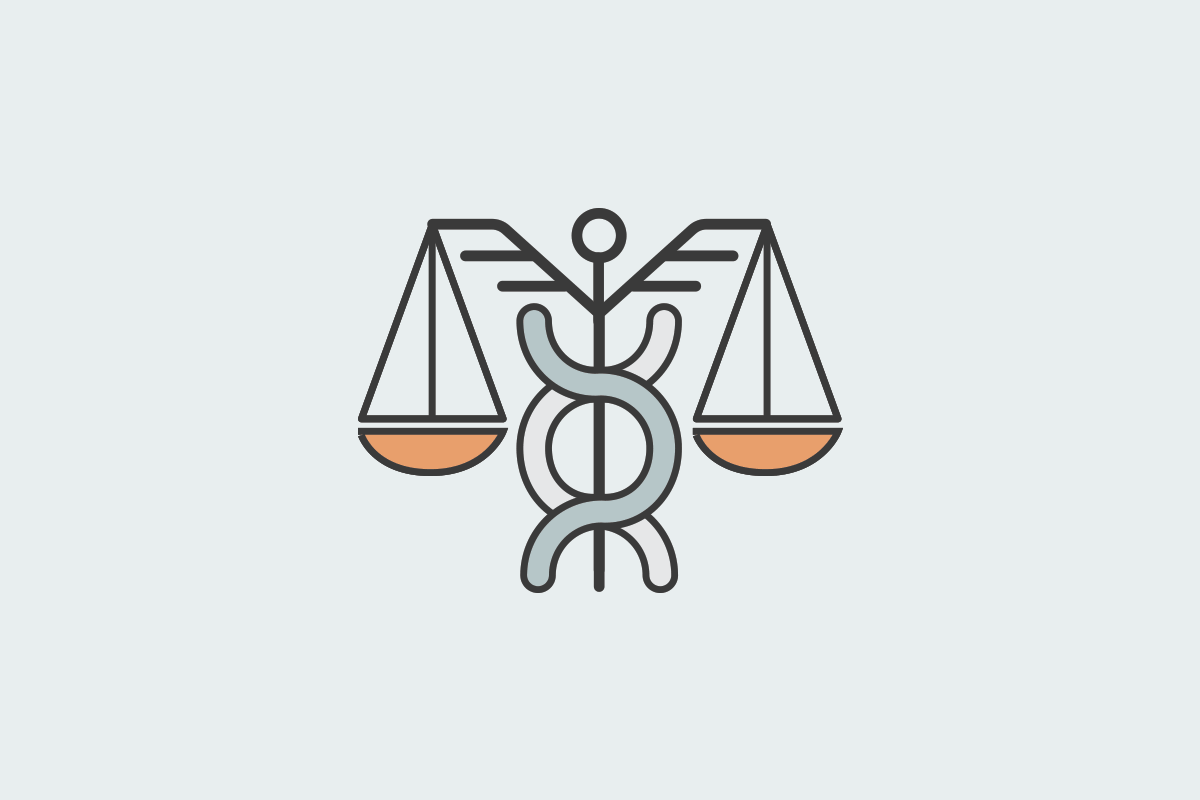It should come as no surprise that the spaces we occupy every day have a huge impact on our overall wellness. The Environmental Protection Agency and Vancouver Coastal Health report that Americans and Canadians spend about 90% of their time indoors. But what about the time we spend outdoors?
Your Welcoa membership has expired.
Using Mental Health Parity Law as a Tool to Design More Holistic Workplace Wellness Programs
The following article does NOT constitute legal advice and should not be used as such. It is for educational purposes only. Readers should retain legal counsel to obtain definitive answers.
It’s no secret that the Covid-19 pandemic has adversely impacted the mental well-being of many workers. Coupled with the tight job market, recruitment and retention of employees is a huge challenge for employers. Many employers may want to focus more heavily on the mental wellness of their employees, and for good reason. According to one survey of employees since the pandemic, over 40% feel hopeless, burned out, or exhausted. That’s about the same percentage of U.S. adults who have reported symptoms of anxiety or depressive disorder, compared to just 10% pre-pandemic. See https://www.kff.org/report-section/the-implications-of-covid-19-for-mental-health-and-substance-use-issue-brief/
Employers may be trying to address mental health in the workplace, but so far not very successfully. According to a recent article by the Society of Human Resource Managers (SHRM), 86% of employers identify mental health, stress, and burnout as a top priority, yet 49% did not have a formal strategy to improve employee well-being. So, even though employers recognize mental health as an important contributor to overall wellbeing, only half of employers are really doing something about it.
This disparity is also reflected in compliance with the Mental Health Parity and Addiction Equity Act (MHPAEA). In its most recent report to Congress, the federal agencies in charge of MHPAEA compliance noted that numerous employers are out of compliance with MHPAEA parity requirements. For example, many plans and health insurance issuers stated they were unprepared to respond to the government’s requests for proof of compliance. Id. at 8.
By way of background, MHPAEA “promotes equal access to treatment for [mental health/substance use disorders (“MH/SUDs”)] by prohibiting coverage limitations that apply more restrictively to MH/SUD benefits than for medical/surgical benefits.” See U.S. Department of Labor 2022 MHPAEA Report to Congress, available at https://www.dol.gov/sites/dolgov/files/EBSA/laws-and-regulations/laws/mental-health-parity/report-to-congress-2022-realizing-parity-reducing-stigma-and-raising-awareness.pdf. Such limitations include both “quantitative treatment limitations” (“QTLs”) and “nonquantitative treatment limitations” (“NQTL’s”). If a group health plan covers MH/SUD benefits (note that a group health plan is not required to provide such benefits), then the group health plan must meet MHPAEA requirements unless an excepted benefit or otherwise exempt from MHPAEA. See Self-Compliance Tool, at 3. Typical exemptions are Employee Assistance Programs that meet certain requirements, retiree-only group health plans, self-insured non-federal governmental plans that have a waiver. See id.
If your group health plan is not exempt, however, and must comply with MHPAEA, then it is important to understand the requirements. The requirements are that if you offer MH/SUD benefits in one “classification,” you must offer those benefits in every classification in which you offer medical/surgical benefits. Those classifications are:
- Inpatient, in-network
- Inpatient, out-of-network
- Outpatient, in-network
- Outpatient, out-of-network
- Emergency care; and
- Prescription drugs.
See Self-Compliance Tool at 4.
This does not mean you need to offer MH/SUD for every possible mental health condition. For example, according to the Department of Labor Frequently Asked Question document, group health plans may exclude benefits for a particular condition or disorder, such as for a specific mental health condition. See https://www.cms.gov/CCIIO/Resources/Fact-Sheets-and-FAQs/Downloads/FAQs-Part-39.pdf, at 8. However, if the group health plan decides to cover a certain mental health condition, benefits for that condition must be provided in every classification in which the plan provides medical/surgical benefits. Id.
Not only must the benefits be provided, but the group health plan cannot impose greater financial (QTLs) or non-financial (NQTLs) restrictions on those MH/SUD benefits when compared to medical/surgical benefits. Examples of QTLs include cost-sharing requirements, whereas examples of NQTLs include prior authorization, formulary designs, utilization review, step-therapy requirements, billing code restrictions, to name a few. See Self-Compliance Tool at 12.
How Can MHPAEA Help Workplace Wellness Program Effectiveness Post-Covid?
So how can MHPAEA help workplace wellness programs address the need for more holistic wellness programs? First, from a fairness viewpoint, including mental health offerings in workplace wellness programs would help address the need being voiced by current and prospective employees. Let’s look at an example of what I mean.
One workplace wellness program in which I have first-hand experience offers several options to earn a $150 reward. The one “required” activity is completing a health assessment, which involves answering a 10-minute questionnaire. Employees must also complete a biometric screen, dental exam, or one coaching session. Then, employees can choose from one of the following activities to earn the reward, after completing the first two activities listed above:
- Three coaching sessions
- Daily habits plan
- Listen to podcast
- Team-based challenges
- Food-based challenges
- Stress resiliency challenges
None of these activities directly address anxiety and depression, but that is what is plaguing countless employees at the moment. Employers that are serious about addressing the mental well-being of their employees should consider offering mental health activities or services in parity with the physical well-being offerings. For example, why not allow the use of the Employee Assistance Program (EAP) as an activity that qualifies for the reward? Or a visit to a psychologist? As a wellness lawyer, I rarely see mental health treatment activities as part of the wellness program reward offerings. Perhaps there is a lingering fear of stigma for using mental health services. But as long as privacy protections are in place and touted as part of the wellness program, I believe a lot of that fear will be addressed. If MHPAEA teaches us anything, is that mental health services should be given equal consideration and treatment to physical health services. Such equal treatment should be no different in workplace wellness programs.
Second, offering mental health services in parity with physical health services in a workplace wellness program is not only fair, but arguably legally required for group health plan wellness programs. Group health plans are subject to MHPAEA. To the extent that a wellness program is tied to the group health plan (or qualifies as its own group health plan), the wellness program must ensure it meets MHPAEA requirements. One requirement is that if a plan provides benefits for a mental health condition, such as depression or anxiety, benefits for that condition must be provided in every classification in which medical/surgical benefits are provided.
One could argue that wellness programs that reward a biometric screening are providing medical benefits in an outpatient, in-network category. Thus, to be in parity with the medical/surgical benefits, a wellness program should also reward mental health screening to help employees address their anxiety and/or depression issues. As far as this author is concerned, this legal issue of whether group health plan wellness programs are subject to MHPAEA is untested. But, the idea makes for an interesting argument in further support of adding mental health activities and services to workplace wellness programs.
Of course, workplace wellness professionals should work with legal counsel to make sure that any mental health offerings do not adversely impact other important aspects of employee benefits, such as jeopardizing an EAP’s excepted benefit status or affecting health savings account eligibility. Contact the Center for Health and Wellness Law, LLC for help with your workplace wellness program compliance needs.

Barbara J. Zabawa
President of the Center for Health and Wellness Law, LLC
wellnesslaw.com
Health Promotion Program Legal Updates*
Every 3rd Wednesday from 10:00–11:00 AM CT
*This is an exclusive WELCOA Member Resource.




